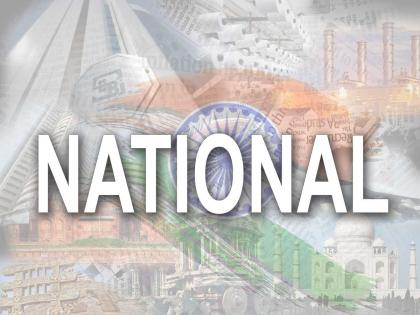'It's very important to unlearn and relearn for chefs'
By IANS | Published: November 19, 2019 11:44 AM2019-11-19T11:44:07+5:302019-11-19T11:55:11+5:30
(life) Chef Vineet Monocha, who has been in the industry for over two decades, believes that the Indian food industry has seen a rapid growth in the past few years especially in the organized food retail sector.

'It's very important to unlearn and relearn for chefs'
In a conversation with life, Monocha, Senior Vice President, Culinary, Lite Bite Foods, which owns brands like Punjab Grill and YouMee, shares more about the industry, his journey in the industry and a lot more.
Read excerpts:
1. How would you define your journey in the food industry?
Life has been delicious for me!! My food journey started at the age of 15 when I started helping my uncle, a wedding caterer. My passion for cooking grew at home eulogising my mom who was an excellent cook. I took up formal catering education at IHM Pusa and haven't looked back since then.
In my career span of 27 years, I worked for Luxury hotel kitchens like Oberoi, Hyatt, Best Airline Kitchens like Oberoi Flight Services, Saudi Catering, innovative restaurant companies like Mars and large casino kitchens before joining Lite Bite Foods, which is one of the largest F&B retail companies in the country.
The range of our food repertoire is from Rs 50 per meal to Rs. 10,000 per meal. I started as a French cuisine Chef, learning the art from native chefs and have been lucky enough to work across the world and well-versed with European as well as Asian food besides the food of Indian subcontinent.
My endeavour has been to understand the ingredients thoroughly and produce my own combinations in the world cuisine genre.
2. How do you think the Indian food industry has grown over the years?
Indian food industry has seen a very rapid growth especially in the organized food retail sector. There was a time when fine food was rarely available out of star hotels. There was a big gap in first class family dining. Then came organized F&B companies like Lite Bite Foods and the rest is history. We have seen a growth of almost 400 per cent in the last five years. Eating out has increased to a great extent.
The guests are well travelled and demand not only creativity but also authenticity. Many chef owned establishments have come up which has made the market very competitive.
3. How difficult it is to survive looking at the competition that today a player in the industry faces?
The competition has grown to a great extent and it is sad to see only two restaurants out of 30 survive more than one year after opening. Food and Beverage is a very skill oriented industry and requires huge amount of personal attention of the promoters. Availability of skilled manpower is another challenge which the industry is facing.
4. How important do you think it is to reinvent flavours when dealing with a global palate?
I feel that its very important to adapt the menu and your offerings as per your target group(TG). Reinventing ingredients is important rather than reinventing flavours. The chilli levels in the food can be controlled, flavour imparting spices like cumin, star anise, green cardamom, saffron, coriander powder, rose petals, cinnamon etc. can be used to keep the Indianness in the food intact.
It is equally important to use the best quality produce, best meat cuts, the right cooking methods, the right time to ensure that the food is evolved yet classic. The food can then be presented in a contemporary style to ensure that your guests feel at ease while experimenting with a new cuisine. As a chef, it's very important to unlearn and relearn. The more one does that, the better are his creations.
5. What are your views on the westernisation of Indian food?
If the food is being served in western countries, some westernisation is essential. It is very important for a chef to understand his/her ingredients thoroughly. A chef who understands the ingredients well can create unique combinations and yet preserve the original essence of the native cuisine. If I'm cooking in USA and I get excellent halibut or scallops which I don't get in India, I will cook them with Indian flavours and Indian cooking methods. This I don't feel is westernisation of food.
6. Punjab Grill, Washington D.C. has been listed in Michelin Guide 2020. How difficult it is for an Indian brand to make a mark on an international level?
Anything which is done professionally, with passion and good intent does not require much effort to make a mark. Passionate efforts are very well recognized by the customer and they patronize the place.
Same is the case with Punjab Grill DC. We took great care in building this restaurant be it the design or the materials used or crockery, cutlery, infact all the guest touch points were very painstakingly planned and customized.
The entire restaurant was built in Jaipur and then packed and reassembled in the US. The effort is being recognized by our guests now.
7. What are your upcoming projects?
We as a company are very upbeat on our Brands Punjab Grill as well as YouMee. YouMee is a manga themed Japanese bistro which serves excellent sushi, dimsum, ramen and robata grills.
We are upgrading some of our existing Punjab Grill locations with a new menu, new presentation style. Also we are coming up with new locations like Chennai, Lucknow. Internationally, we are coming up with a second Punjab Grill in Abu Dhabi and looking a London market very closely.
(Puja Gupta can be contacted at puja.g@.in)
( With inputs from IANS )
Open in app